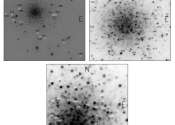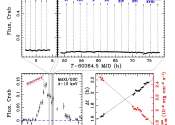Where space weather starts: Self-consistent propagation of flux ropes in realistic coronal simulations
The effects of space weather extend out across our entire solar system, but this is a simulation of where everything starts: the sudden, violent, emergence of a "flux rope" out of the sun's magnetic field and into the solar ...









